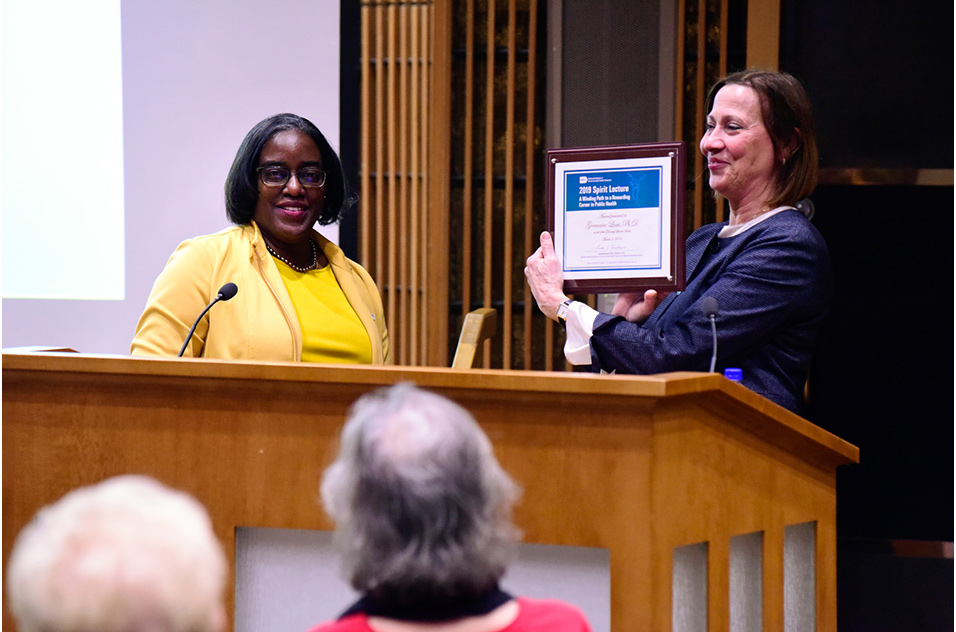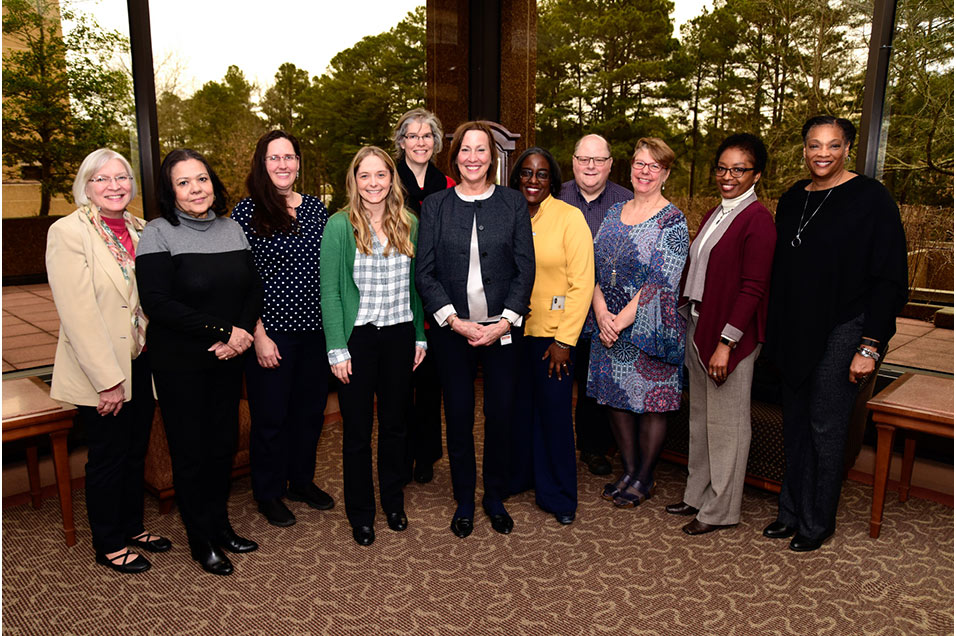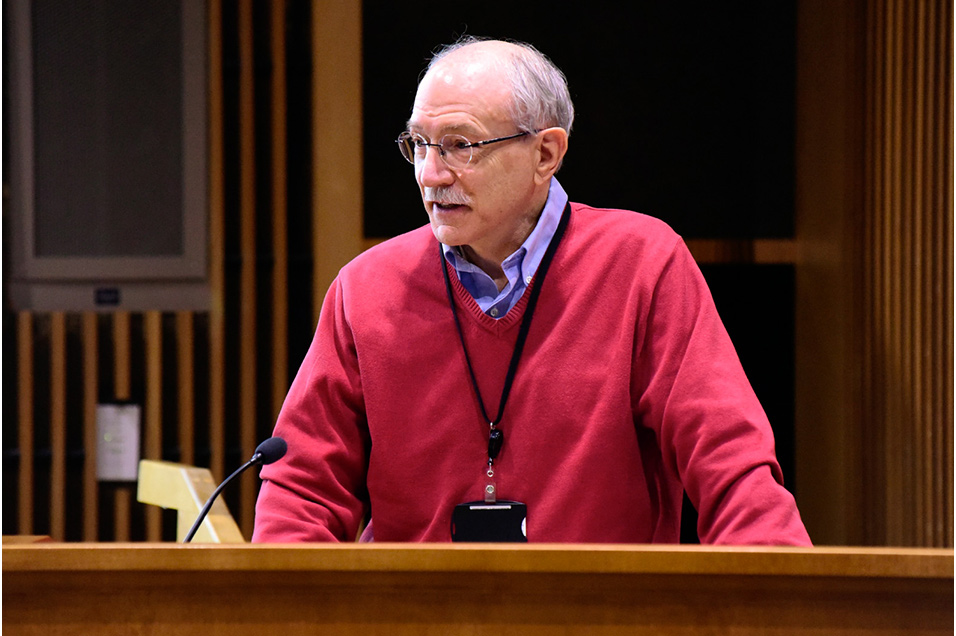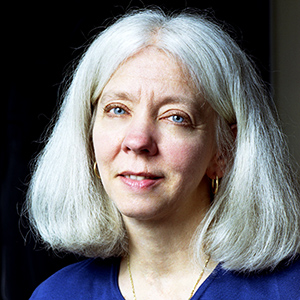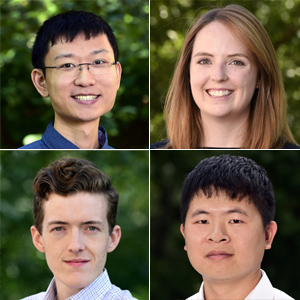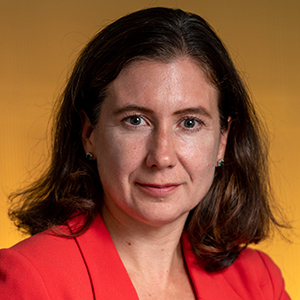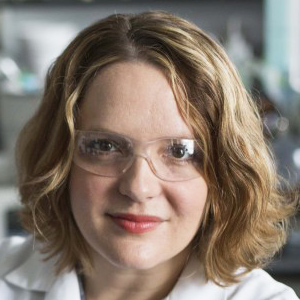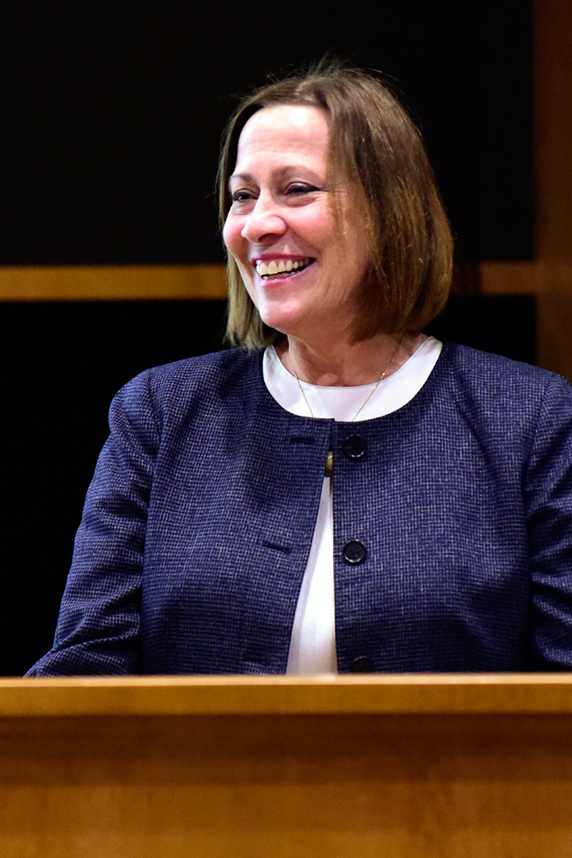 “You have to learn to tell your story,” Louis advised. She told of learning to explain how each bend in her career path was a strength, not a detour. (Photo courtesy of Steve McCaw)
“You have to learn to tell your story,” Louis advised. She told of learning to explain how each bend in her career path was a strength, not a detour. (Photo courtesy of Steve McCaw)NIEHS kicked off national Women’s History Month with the 2019 Spirit Lecture March 5 by Germaine Louis, Ph.D. She is an internationally recognized expert on the impact of environmental influences — such as endocrine disruptors, diet, and exercise — on fertility.
She also serves as Dean of the College of Health and Human Services at George Mason University and is a professor in the Department of Global and Community Health.
NIEHS Deputy Director Roy Woychik, Ph.D., gave Louis a warm welcome. “Today, we are honored to recognize Dr. Louis for her many achievements, which not only include her research endeavors, but also her service to the scientific community and her dedication to mentoring the next generation of scientists,” he said.
The road less traveled
In her talk, “A Winding Path to a Rewarding Career in Public Health,” Louis emphasized the strengths that can be gained from a nonlinear career trajectory. Using herself as a case study, she explained that her career goals changed over time. “Early on, as a child, I wanted to be a nurse,” she said. Louis trained and worked as a registered nurse at Millard Fillmore Hospital, where she was first exposed to public health. She promptly fell in love with the field.
During graduate education in reproductive epidemiology at State University of New York at Buffalo, Louis was discouraged by the scarcity of training grants available to students interested in the subject. She continued to work as a nurse to support herself and her family while in graduate school.
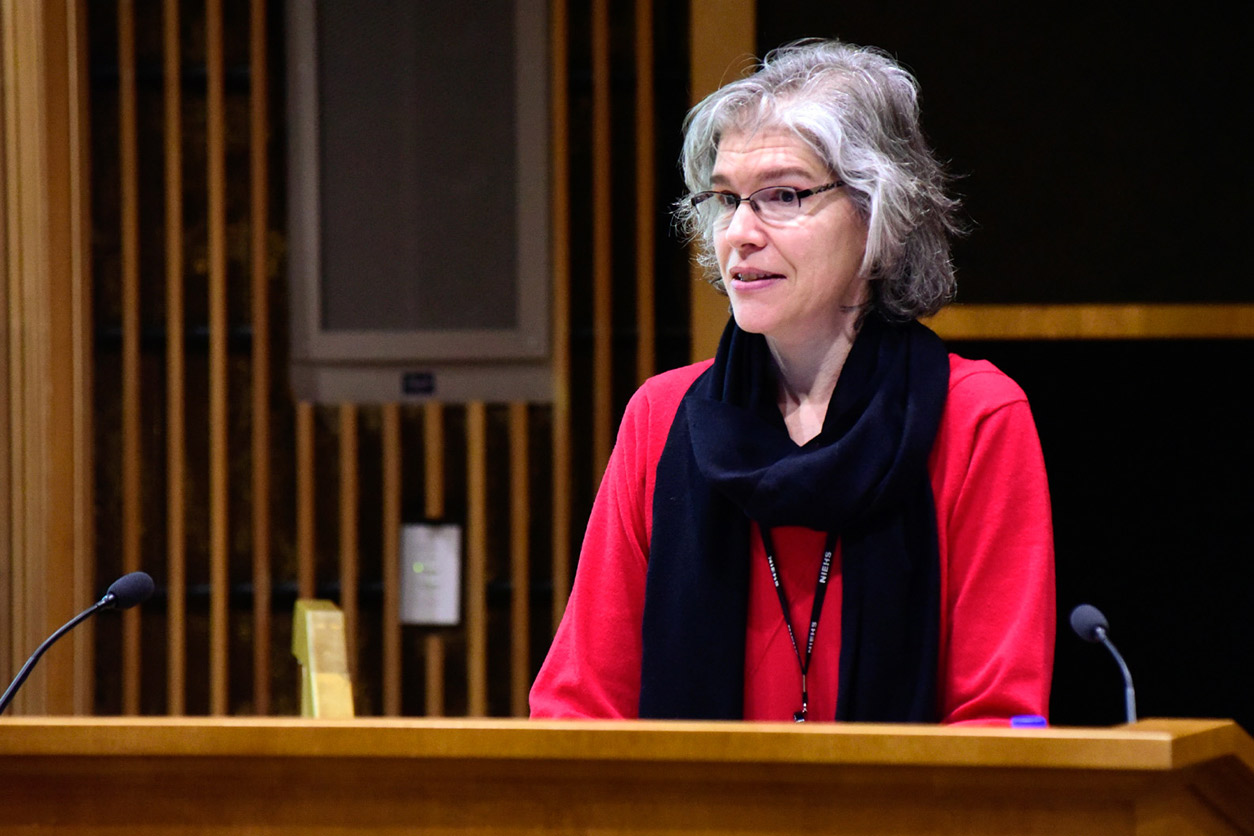 “The Spirit Lecture Series was established in 2002 by the NIEHS Diversity Council to embody the idea that balance in one’s life is necessary to achieve greatness in any field, including science,” said Spirit Lecture Committee co-chair Kembra Howdeshell, Ph.D., from the National Toxicology Program (NTP). (Photo courtesy of Steve McCaw)
“The Spirit Lecture Series was established in 2002 by the NIEHS Diversity Council to embody the idea that balance in one’s life is necessary to achieve greatness in any field, including science,” said Spirit Lecture Committee co-chair Kembra Howdeshell, Ph.D., from the National Toxicology Program (NTP). (Photo courtesy of Steve McCaw)A passion for public health
In 2000, Louis was invited to be a Senior Investigator and Chief of the Epidemiology Branch at the Eunice Kennedy Shriver National Institute of Child Health and Human Development (NICHD). She recalled that it was easy to say yes to the job. “Doing risky impactful work that can’t be done on the grant mechanism — it was really seducing to somebody like me.”
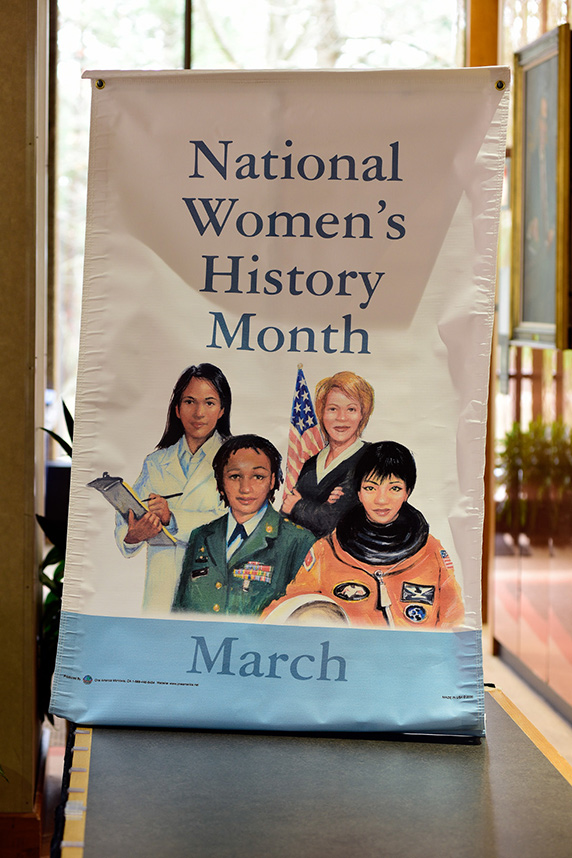 The Spirit Lecture is timed to coincide with National Women’s History Month. (Photo courtesy of Steve McCaw)
The Spirit Lecture is timed to coincide with National Women’s History Month. (Photo courtesy of Steve McCaw)She also recognized that the position would enable her to encourage initiatives highlighting public health research. “It would be an opportunity to influence and advocate for not only epidemiology, but also public health in general,” she said.
Later, as a division director in NICHD, Louis helped develop training and research opportunities that she wished had been available to her as a graduate student. For example, working with the Society of Pediatric and Perinatal Epidemiological Research, as well as the Canadian Institute for Health Research, she laid out a plan to enhance reproductive and perinatal epidemiology through training grants and a summer institute in reproductive and perinatal epidemiology, respectively. Louis went on to co-edit a textbook on reproductive and perinatal epidemiology that stemmed from the summer institute’s curriculum.
Invaluable experiences
Today, Louis calls upon all her previous work experiences as a nurse, professor, and researcher in her role as dean at George Mason University. She believes these varied life experiences gave her a stronger, more interdisciplinary approach that makes her a better leader, professor, and mentor.
“[Equally] important are my roles as daughter, niece, friend, colleague, wife, mother, and grandmother, as they ground my career and keep me righted as a researcher,” she said.
(Kathleen Foley is an Intramural Research and Training Award postbaccalaureate fellow in the NIEHS Receptor Biology Group.)





